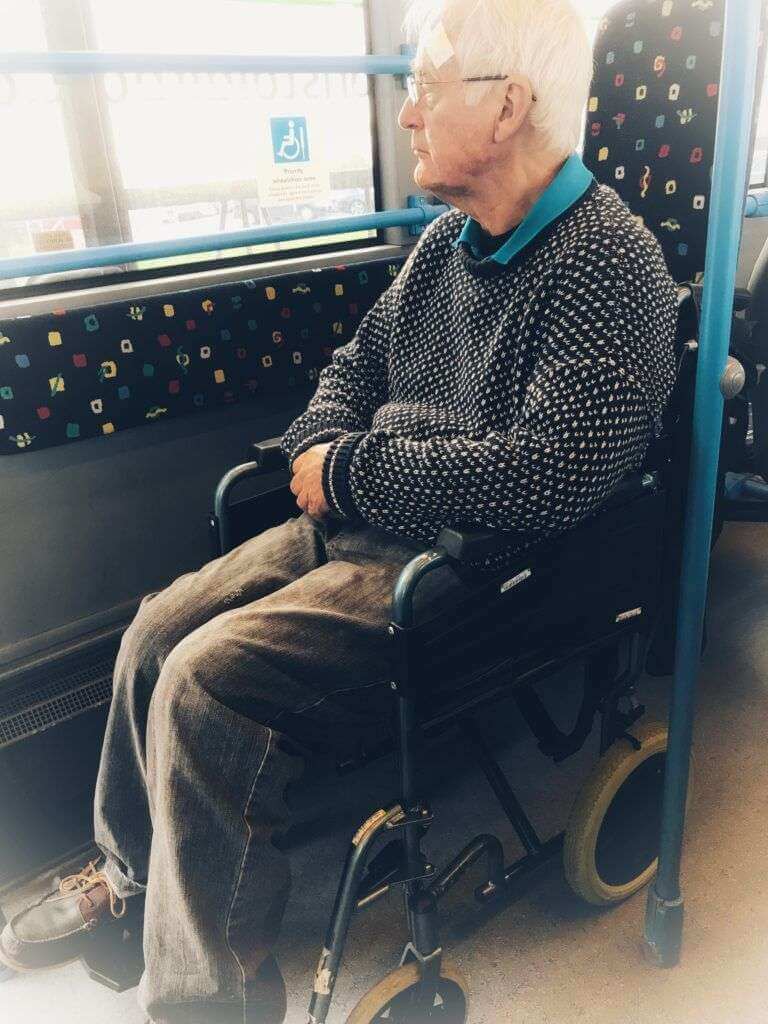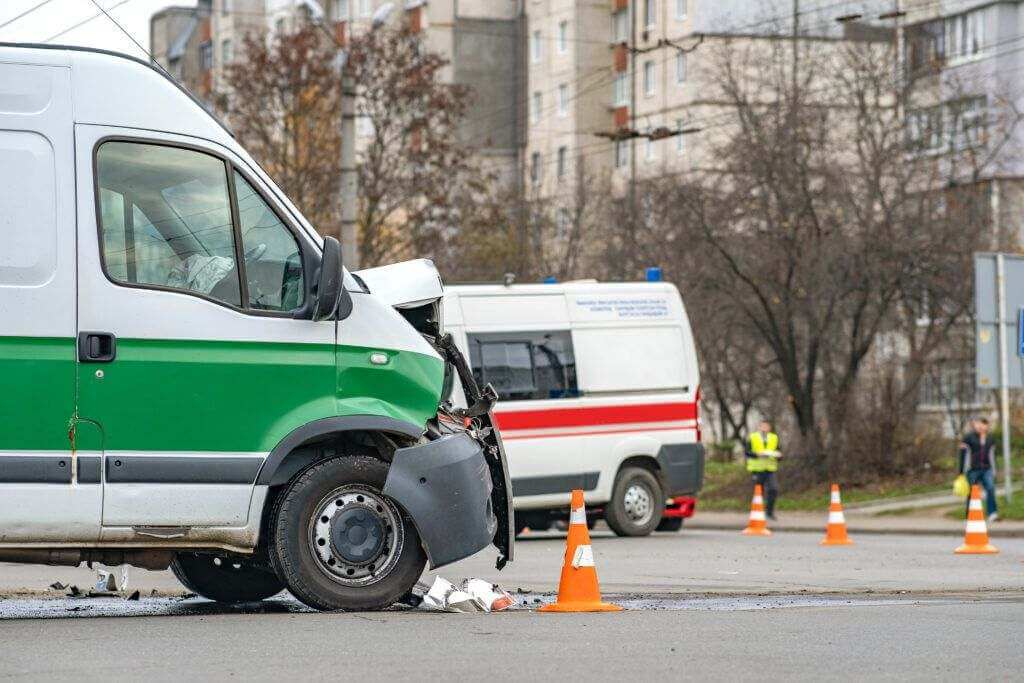Many people depend on non-emergency medical transportation (NEMT) services to transport them to the hospital or to doctor’s appointments. When people use these services, they expect to get to their desired location safely. Unfortunately, that doesn’t always happen.
If you have been injured or a loved one was killed because of a non-emergency medical transportation company’s negligent practices, you may be entitled to financial recovery to help with your monetary strain, physical pain, and emotional suffering. Our team of skilled personal injury attorneys will fight for your right to hold the correct people responsible and will work hard to secure full and fair compensation for your losses. Contact us at 706-354-4000 or fill out our contact form.
Other Personal Injury Topics
- Wrongful Death Claims After a Car Accident (2/7/2019)
- Who Pays for Lost Wages After a Georgia Car Accident? (3/21/2025)
- What’s the Average Settlement for a Semi-Truck Accident in Georgia? (12/22/2024)
- What’s the Process for Commercial Truck Accident Settlements? (9/12/2019)
- What to Know About Insurance After a Truck Accident (9/12/2019)
- What to Do After an Atlanta Pit Bull Attack (10/13/2021)
- What Is the Timeline to Settle A Georgia Car Accident Claim? (2/16/2024)
- What Is the Statute of Limitations on Medical Malpractice in Georgia? (5/15/2023)
Who Uses Non-Emergency Medical Transportation Services?
Non-Emergency Medical Transportation (NEMT) services are used by a wide variety of Medicaid-eligible individuals who need aid getting to and from medical appointments due to various health, mobility, or economic limitations. Here are a few groups of people who often rely on these services:
- Elderly Individuals: As people age, they may face mobility challenges or health conditions that make driving difficult or unsafe. NEMT services can provide a safe and reliable means of transportation for older adults to attend regular check-ups, physical therapy, dialysis, and other essential health-related appointments.
- Individuals with Disabilities: Those with physical, cognitive, or sensory disabilities may find it challenging to use standard modes of transportation. NEMT services can offer specialized vehicles and trained personnel to assist these individuals in reaching their medical appointments safely.
- Low-Income Individuals: People with limited financial resources may not own a personal vehicle or have access to public transportation. In such cases, NEMT services can provide a cost-effective solution to ensure they can access necessary health care services.
- Individuals with Chronic Conditions: Those with chronic diseases such as heart disease, diabetes, cancer, or kidney disease often require frequent medical appointments. NEMT services can help ensure they make it to these appointments regularly.
- Individuals Undergoing Rehabilitation: After surgeries or significant medical procedures individuals may need regular rehabilitation or follow-up appointments but may be temporarily unable to drive. NEMT services provide a crucial link to continued care in these situations.
- Rural Residents: For those living in rural areas where healthcare facilities may be distant and public transportation options are limited, NEMT services can be a lifeline, connecting them with the healthcare services they need.

Non-Emergency Medical Transport Accidents
The companies that supply medical transportation services to customers must use extra care to safely transport them. This includes making sure their vehicles have sufficient insurance coverage, conducting proper background checks on drivers, hiring skilled drivers, and conducting regular maintenance checks on their vehicles, amongst other practices. Unfortunately, some medical transportation companies choose profits over patient safety and hire unqualified drivers or fail to conduct regular maintenance on vehicles. This can lead to serious accidents and increase the likelihood of a passenger suffering harm while using a medical transportation service.
How medical transport injuries might occur varies. Some examples include:
- Vehicle collisions
- Unsupervised patients
- Failure to properly secure a patient
- Failure to properly secure a wheelchair or gurney inside a vehicle
- Unsafe or improper use of lifts
- Unsafe or improper transfers of patients into and out of a vehicle
Common Injuries in Non-Emergency Medical Transportation Crashes
Injuries from a medical transportation crash vary depending on several factors, including the vehicle type, the rate of speed, the number of vehicles involved, and more. Some common injuries in medical transportation crashes may include, but aren’t limited to the following:
- Traumatic brain injuries
- Spinal cord injuries
- Broken Bones
- Severe Lacerations
- Internal bleeding
- Emotional and psychological trauma

Who is Liable in a Non-Emergency Medical Transportation Crash?
Depending on the facts of the crash, the responsible parties might include the driver, the medical transit company that employed the driver, the driver of another vehicle, the parts manufacturer, the maintenance company, the Georgia Department of Transportation (GDOT), the Georgia Department of Community Health (DCH), or other government agencies that set the rules and regulations for the transit company.
Dealing with a personal injury non-emergency medical transportation case can be complex. These types of cases often involve multiple people, companies, and government agencies. Hiring an experienced personal injury attorney is crucial to the outcome of your case. The skilled attorneys at BBGA have the necessary resources to work closely with accident reconstruction experts, life care planners, and other medical experts to establish who is at fault for the crash, prove that your injuries were a direct result of the incident, and determine a fair settlement amount. They can help gather expert testimony that can be used in witness preparation and cross-examination, when necessary.
What Should I Do if I’m Injured While Using Non-Emergency Medical Transportation Services?
If you are seriously injured while using a medical transportation service, the most crucial step is to seek immediate help for yourself and for others, by calling 911 and reporting the incident to the police. If you are able, move to a safe area to prevent further injury, but remain at the scene to speak with first responders.
Other important steps:
- Exchange information with those involved and other witnesses
- Document everything
- Take photos of the vehicles
- Take photos of the identification number
- Take a video of the scene
- Take photos of your injuries
- Write down what you know about the crash such as the date, time, location, other people involved, and what happened. This can be done on paper or by using the Notes app on a smartphone.
- Seek immediate medical care for your injuries
- Ask for copies of any medical treatment plans, X-Rays, scans, or medical bills
- Keep a physical and/or digital folder with all the information you gather to share with a personal injury attorney when you are ready to file a claim
Georgia Statute of Limitations for Non-Emergency Medical Transport Injury Claims
In Georgia, the statute of limitations for most personal injury cases is two years after the date of the incident that caused your injuries. This can differ depending on the circumstances of each case. Click here to learn more about Georgia’s statute of limitations for personal injury cases.
The experienced personal injury attorneys at BBGA are well-versed in filing claims against medical transportation companies and can ensure all the proper steps are followed within the statute of limitations so your case can move forward in the court system.
A History of Results
We have an established track record of bringing our clients the results they expect and deserve. We have recovered millions of dollars for our clients, and we know how to fight the insurance companies.
What Types of Damages Can I Be Compensated for in a Non-Emergency Medical Transportation Accident?
The damages you can be compensated for in a non-emergency medical transportation accident vary based on several factors like the severity of your injuries, how much your injuries interfere with your life, and whether you will have future surgeries or ongoing complications.
Damages you may be compensated for in a medical transportation accident may include:
- Past and future medical bills
- Lost income
- Loss of future earning ability
- Damage to personal property
- Pain and suffering
- Loss of consortium (quality of life)
Our Georgia Non-Emergency Medical Transportation Accident Attorneys Are Ready to Work for You

Our attorneys have a proven record of securing the results personal injury victims need to get on with their lives. If you were injured in a non-emergency medical transportation accident, we can review the circumstances of the incident and determine whether you have a valid case.
We can collaborate with medical professionals, accident reconstruction experts, witnesses, and other professionals to establish the cause of your injury and prove damages. We can also investigate the medical transportation company’s history of policies and procedures, as well as documents about the people involved, and determine whether negligent practices were a factor in your injury. If negligence is found, we will protect your interests by pursuing a case against the parties involved, and if necessary, by representing you at trial.
Please call our office at 706-354-4000 to schedule a free consultation or fill out our contact form to tell us more about your potential case. There is no cost unless we recover money for you in your case.
